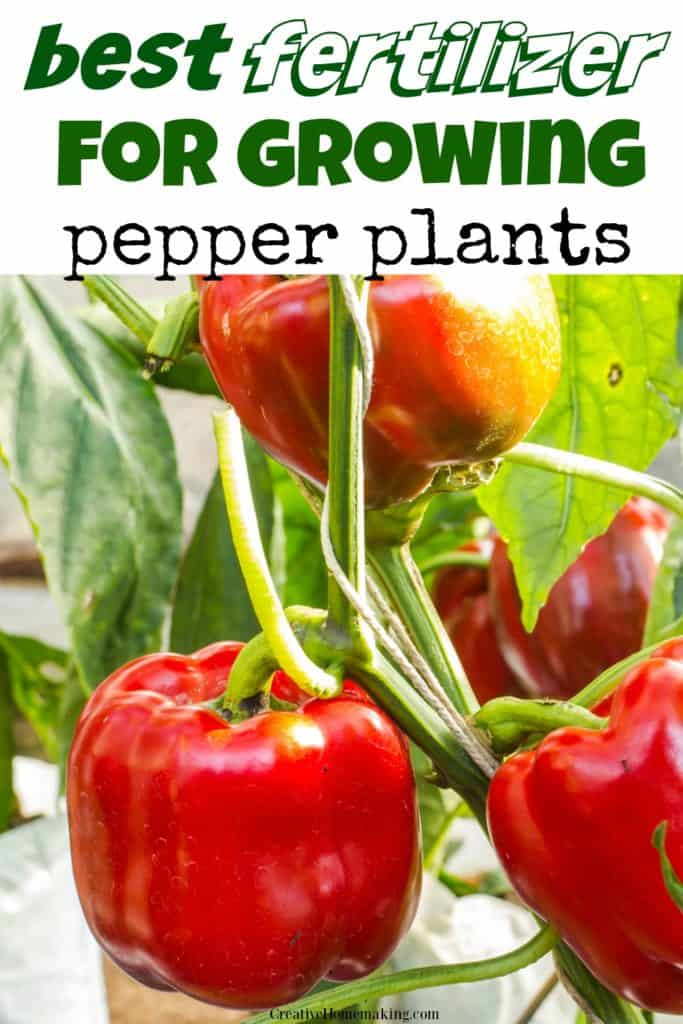Just How Fertilizers Play a Critical Function in Growing Abundant and healthy Pepper Crops
Plant foods serve as the foundation of effective pepper farming, using a tactical approach to nurturing the soil and fostering optimum plant growth. The intricate dancing in between crucial nutrients and the pepper plants' physical procedures highlights the pivotal function that plant foods play in making sure an abundant harvest.
Importance of Nutrient-Rich Plant Foods
The usage of nutrient-rich plant foods plays an essential function in enhancing the performance and quality of pepper plants in modern-day agricultural practices. Pepper plants need a balanced mix of important nutrients to flourish and generate high returns of top quality fruits. Nitrogen, phosphorus, and potassium are main nutrients that are important for the growth and advancement of pepper plants. Nitrogen help in leafy green growth and general plant vitality, phosphorus supports root advancement and blossom manufacturing, while potassium adds to condition resistance and fruit top quality.
Inadequate levels of these nutrients can result in stunted growth, decreased returns, and sensitivity to conditions (best fertilizers for peppers). Nutrient-rich plant foods supply a targeted option to make sure that pepper plants get the needed aspects for optimum growth and productivity. Additionally, these plant foods aid boost dirt fertility gradually, producing a sustainable atmosphere for long-term pepper cultivation
Enhancing Plant Development and Growth
To enhance plant development and growth in pepper plants, strategic application of nutrient-rich plant foods is crucial. Fertilizers play an important function in boosting the general health and performance of pepper plants by supplying them with vital nutrients that might be lacking in the dirt.
Iron, for instance, is essential for chlorophyll production, which is necessary for photosynthesis and total plant growth. Zinc plays an important function in enzyme activity and hormone synthesis, affecting plant growth and advancement at a mobile degree.

Boosting Condition Resistance With Fertilizers
By tactically including targeted plant foods, farmers can bolster the illness resistance of pepper plants, making certain optimal plant health and wellness and productivity. Fertilizers consisting of crucial nutrients like nitrogen, potassium, and phosphorus play a critical role in strengthening pepper plants' body immune systems, making them more durable to different illness. Nitrogen, as an example, help in the manufacturing of healthy proteins that are crucial for plant protection devices. Phosphorus contributes to root development, allowing plants to better take in nutrients and water, therefore improving their capability to repel conditions. Potassium manages procedures that boost total plant wellness, making peppers more robust against pathogens.
:strip_icc()/BHG-Growing-Peppers-Indoors-EzgaEnB7KML9Ym_plkvuxK-9398f1341d86483083862533ae7622db.jpg)
Making Best Use Of Pepper Return With Fertilizing
Using a click now balanced fertilizing strategy is essential to achieving optimum pepper yield and ensuring optimum crop performance. By supplying peppers with the right nutrients at the correct time, farmers can dramatically enhance their return capacity. Nitrogen, phosphorus, and potassium are essential elements for pepper development, with nitrogen aiding in fallen leave and stem development, phosphorus supporting origin growth and blossom development, and potassium advertising overall plant health and wellness.
To take full advantage of pepper return, it is essential to perform soil tests to establish existing nutrient degrees and identify any type of shortages that require to be addressed. Based on these outcomes, farmers can develop a tailored fertilizing plan that satisfies the specific needs of their pepper plants. In addition, proper fertilizing strategies such as split applications throughout the growing period can make sure continual nutrient accessibility for the plants.

Lasting Plant Food Practices for Peppers
In thinking about lasting plant food practices for peppers, it is essential to concentrate on lasting dirt health and environmental stewardship in combination with taking full advantage of plant efficiency. Lasting plant food practices aim to preserve or boost soil fertility while lessening damaging ecological influences. One key method is the use of organic fertilizers such as garden compost, manure, or cover plants, which not just give important nutrients to the peppers however additionally contribute to soil structure and microbial activity. Continue These organic options help build raw material in the soil, improving its ability to keep water and nutrients, thereby sustaining lasting plant wellness and strength.
Additionally, accuracy agriculture techniques, such as dirt testing and targeted nutrient applications, can aid enhance plant food use, making certain that peppers get the nutrients they anchor need without excess runoff right into rivers. This not only profits the setting by lowering contamination yet likewise saves prices for farmers by minimizing waste. By embracing sustainable plant food practices, pepper cultivators can protect the health of their plants, soil, and bordering communities for future generations.
Final Thought
Finally, plant foods are important for cultivating healthy and balanced and plentiful pepper crops. best fertilizers for peppers. They give required nutrients for plant development and growth, boost condition resistance, and make the most of return. By implementing lasting fertilizer techniques, farmers can ensure the long-lasting wellness of their pepper crops and add to a more effective and environmentally-friendly agricultural system
The detailed dancing between crucial nutrients and the pepper plants' physiological processes emphasizes the pivotal function that plant foods play in guaranteeing an abundant harvest.To maximize plant development and development in pepper plants, critical application of nutrient-rich fertilizers is important. Fertilizers play an essential function in improving the total wellness and productivity of pepper plants by giving them with important nutrients that might be lacking in the dirt.By strategically including targeted fertilizers, farmers can bolster the condition resistance of pepper crops, guaranteeing optimal plant wellness and performance. Plant foods having vital nutrients like nitrogen, potassium, and phosphorus play an important function in enhancing pepper plants' immune systems, making them much more resilient to various diseases.